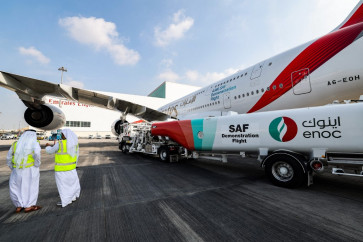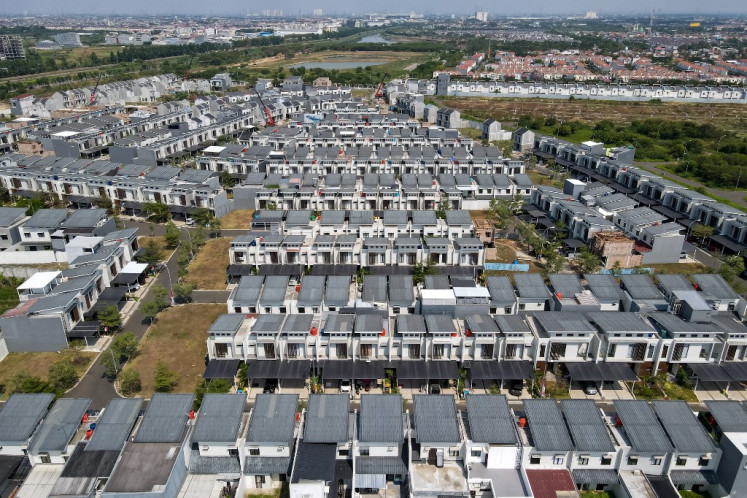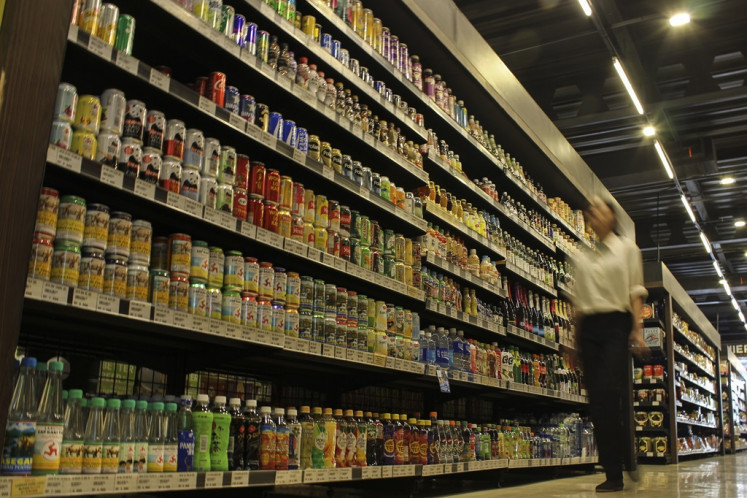Govt to boost scrutiny of waste imports
The government will evaluate surveyors assigned to verify any imports of nonhazardous waste and push for a revision of the waste-import policy in the wake of recent reports of rampant plastic waste smuggling into the archipelago
Change Size

T
span>The government will evaluate surveyors assigned to verify any imports of nonhazardous waste and push for a revision of the waste-import policy in the wake of recent reports of rampant plastic waste smuggling into the archipelago.
The Environment and Forestry Ministry’s waste management director general, Rosa Vivien Ratnawati, said the decisions were made during a coordination meeting between various ministries and regional administrations in the Coordinating Maritime Affairs Ministry on Wednesday.
“The order made during the meeting is to evaluate the independent surveyors conducting the preshipment inspection of such imports, as they are in the front line of ensuring no unneeded waste enters our country,” Rosa said after the meeting.
Current policy allows the import of — among other materials — plastic waste, scrap metal and paper waste needed to support local industries.
The 2016 Trade Ministerial regulation on nonhazardous waste imports stipulates a requirement for an independent surveyor to check whether these imports contain unneeded waste.
Despite the requirement for verification, civil society organizations and authorities have found several instances of plastic waste being smuggled into Indonesia among the nonhazardous waste imports.
During the meeting, officials reportedly revealed that they found that several nonhazardous waste imports in Surabaya, East Java, were contaminated by unneeded waste by up to 30 percent.
The Environment and Forestry Ministry had previously discovered a company misusing its import permit to smuggle unneeded plastic waste among waste paper that was to be used by the paper-recycling industry in Surabaya.
“We have ordered it to return at least one container weighing around 10 to 20 tons, filled with waste paper contaminated with plastic waste,” said Sayid Muhadhar, the secretary of the ministry’s Waste Management Directorate General, recently.
Apart from evaluating the verification mechanism, officials also agreed to push for a revision of the 2016 regulation.
The Trade Ministry’s international trade director general, Oke Nurwan, said his team had prepared a draft of the revised regulation. The revision will focus on strengthening the verification of waste imports as well as the harmonized system (HS) code used to identify the content of specific imports.
“We will need more detailed technical rules on the usage of such HS codes to prevent smuggling. It can be put into a separate regulation or the revised ministerial regulation,” Oke said.
A Greenpeace report issued late last month shows there has been an increase in shipments of plastic waste from developed countries to developing nations. This has been occurring since February 2018, when China decided to ban imports of 24 types of waste material.
Germany was one of the countries that recorded a steep increase in exports. Between January and November 2018, it exported 59,668 tons of plastic waste to Indonesia — compared with only 408 tons in the corresponding period in the preceding year.
German Ambassador to Indonesia Peter Schoof said his government wanted to support the Indonesian government in controlling the influx of waste.
“There is an ongoing awareness for it to consider these business models that we have, and certainly an ongoing topic that we in the embassy follow closely and do not shy away from,” he said.
“The last thing we would like to do is to be seen as contributing to a situation where we add to the already very important waste issue in this country. We’ve spent so much money on waste management, we would be shooting ourselves in the foot [if we did nothing],” he said.









